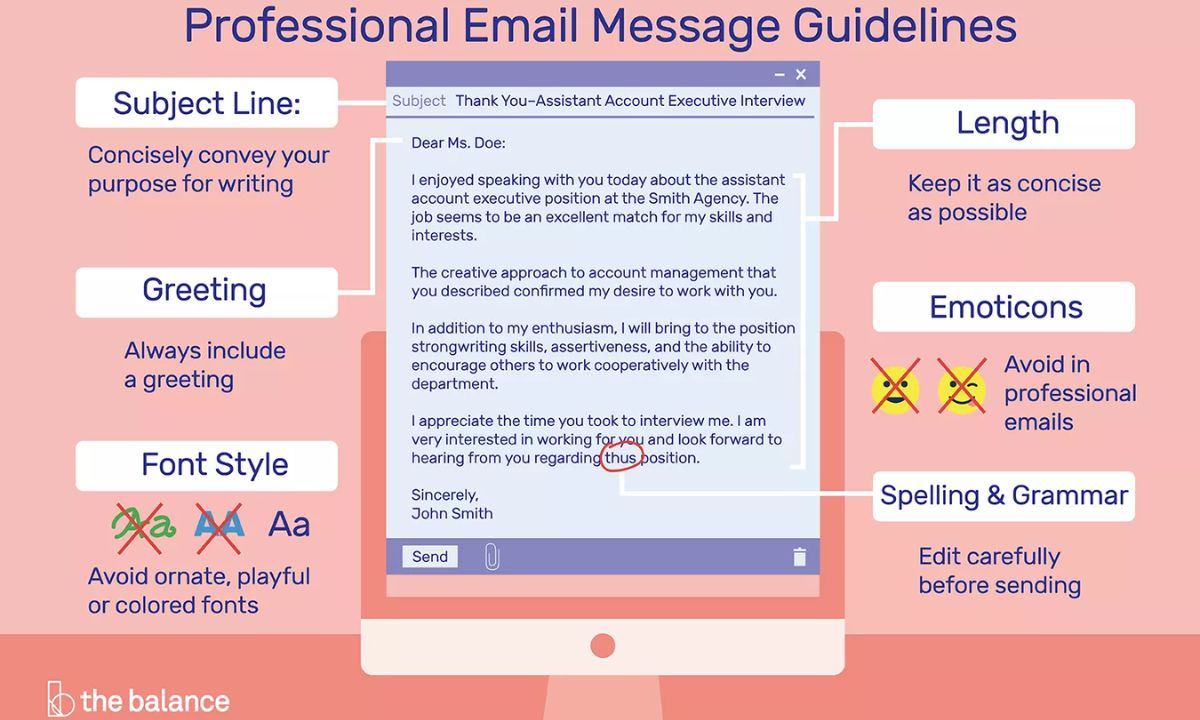In today’s fast-paced digital world, effective communication is more crucial than ever. Whether you’re in a corporate setting, a casual workplace, or managing personal correspondence, how you express yourself through email can greatly impact your professional image.
One common scenario many of us encounter is needing to correct or retract information sent in a previous email. Instead of using the phrase “Please disregard my previous email,” there are various alternative expressions that can convey your message more professionally and courteously.
Using polite alternatives not only helps to maintain your professionalism but also reduces the likelihood of confusion for the recipient. Each of these phrases can be tailored to fit the context of your message, allowing for a more personalized touch.
Additionally, these alternatives can show that you value clear communication and respect the recipient’s time by providing updated information without sounding abrupt.
Choosing the right words can also reflect your understanding of email etiquette, which is essential in today’s business environment. For instance, phrases like “Please ignore my last email” or “Disregard my previous message”
can serve as immediate clarifications, while options such as “Kindly overlook my earlier correspondence” add a layer of politeness. This approach fosters goodwill and encourages a positive communication flow.
Moreover, acknowledging your mistakes with grace demonstrates accountability and professionalism. As we navigate through our daily tasks, we may inadvertently send emails with errors or outdated information.
Recognizing this and promptly sending a correction can help maintain trust and credibility with colleagues, clients, and stakeholders.
Incorporating these alternatives into your email communication can enhance your ability to express yourself clearly and effectively.
It not only preserves the integrity of your message but also reinforces your reputation as a thoughtful communicator. Here are 20 professional alternatives to consider the next time you need to retract a previous email:
Understading the Importance of Email Etiquette
Proper email etiquette not only ensures clarity in communication but also helps maintain a positive relationship with colleagues and clients. When you realize that an earlier email contained errors or outdated information,
addressing it promptly and politely is essential. Using more refined phrases can help you avoid sounding abrupt or dismissive, which can negatively affect how your message is received.
In a professional environment, your emails often serve as a reflection of your professionalism and attention to detail. The way you communicate can either build trust or create misunderstandings.
Therefore, being mindful of your language is crucial. Thoughtful wording demonstrates respect for the recipient’s time and attention, showing that you value their understanding and collaboration.
Moreover, good email etiquette fosters a culture of open communication. When colleagues feel comfortable correcting or clarifying past messages, it encourages a more transparent working environment. This not only enhances teamwork but also leads to more effective problem-solving.
In addition, professional emails often become part of a company’s communication history. Maintaining a standard of politeness and professionalism contributes to a positive organizational culture.
Ultimately, mastering email etiquette is an ongoing process that can greatly influence your career trajectory. By consistently applying these principles, you can enhance your professional relationships and ensure that your communications are both effective and respectful.
Read this Blog https://qavasaki.com/20-other-ways-to-say/
1. “Please Ignore My Last Email”
This straightforward phrase conveys your request clearly. It’s useful when you’ve realized an error in the most recent email sent. For instance, you might say, “Hi, please ignore my last email. I made an error.” This approach is simple and direct, making it easy for the recipient to understand your intent.
2. “Disregard My Previous Message”
This alternative is perfect for situations where you need to correct a misunderstanding. For example, you could say, “Hello, disregard my previous message. Here’s the updated information.” It effectively communicates the need for the recipient to focus on the new details you are providing.
3. “Please Dismiss My Previous Email”
Using “dismiss” adds a level of professionalism to your communication. It can be particularly effective when clarifying a point made earlier. An example might be, “Kindly dismiss my previous email; here’s the accurate detail.” This phrase encourages the recipient to focus solely on the new information.
4. “Ignore the Email I Sent Earlier”
This phrase is casual yet professional, suitable for informal settings. You might say, “Hi, please ignore the email I sent earlier. Here’s the correct info.” It clearly indicates that the earlier message is no longer relevant.
5. “Forget My Last Message”
This is another casual alternative that works well when the previous email was unnecessary or incorrect. For instance, “Forget my last message; it was sent in error.” This phrase can help lighten the mood while still getting your point across.
6. “Please Set Aside My Previous Email”
This expression is particularly useful when you’re sending revised information. An example could be, “Please set aside my previous email. The correct details are in this one.” It indicates that the new email contains the necessary information.
7. “Please Overlook My Previous Email”
This alternative is polite and encourages the recipient to disregard the earlier message. You might use it in a sentence like, “Please overlook my previous email. The information has changed.” It shows respect for the recipient’s time and attention.
8. “Please Ignore the Earlier Email”
This phrase is direct and effective, particularly after sending incorrect information. For example, “Hello, please ignore the earlier email as it contained errors.” It emphasizes that the previous email should not be taken into account.
9. “Please Disregard the Previous Note”
This phrase works well for brief communications, such as notes or memos. An example could be, “Please disregard the previous note; this email has the correct details.” It’s concise and to the point.
10. “Please Dismiss the Last Email”
This option is useful for correcting an email that has mistakes. You might say, “Please dismiss the last email I sent; it was incorrect.” It communicates your intent clearly without being overly formal.
11. “Please Ignore the Previous Correspondence”
This phrase is more formal and can be used in professional settings. For instance, “Please ignore the previous correspondence; here’s the updated version.” It indicates that the information in the earlier correspondence is no longer valid.
12. “Disregard the Earlier Message”
This is another straightforward expression that works well when you need to communicate a correction. An example might be, “Please disregard the earlier message; here’s the accurate info.”
13. “Please Set Aside the Previous Email”
This phrase encourages the recipient to focus on the new information you’re providing. You could say, “Please set aside the previous email. Here’s the correct version.” It’s polite and professional.
14. “Please Disregard the Last Message”
This expression is effective for correcting mistakes in the most recent email. For example, “Please disregard the last message; the information was incorrect.” It helps maintain clarity in communication.
15. “Ignore the Previous Email”
This straightforward phrase is effective in casual settings. An example could be, “Ignore the previous email; this one has the correct information.” It’s clear and easy to understand.
16. “Forget the Earlier Email”
This is a casual yet effective option for asking someone to disregard a previous message. You might say, “Forget the earlier email; here’s the revised information.”
17. “Please Ignore the Earlier Correspondence”
This phrase is more formal and can be used in professional contexts. For example, “Please ignore the earlier correspondence; the updated details are below.” It conveys respect for the recipient’s time.
18. “Please Disregard the Earlier Message”
This option is useful for providing new or corrected information. An example could be, “Please disregard the earlier message. Here’s th
19. “Kindly Ignore the Previous Email”
This polite request adds a touch of courtesy to your message. You might say, “Kindly ignore the previous email; it contained incorrect information.” It shows respect for the recipient.
20. “Please Overlook the Earlier Email”
This phrase requests the recipient to disregard the earlier message. An example could be, “Please overlook the earlier email; this message has the correct info.” It’s a polite way to redirect attention.
FAQs
Why should I avoid saying “Please Disregard My Previous Email”?
Using “please disregard my previous email” can sound abrupt or confusing to recipients. More polite alternatives can help maintain a positive tone and clarify your intent more effectively.
What are some professional alternatives to “Please Disregard My Previous Email”?
Alternatives like “My apologies for any confusion, please see my updated email below” or “Please refer to the following email for the correct details” help convey the same message more smoothly and professionally.
When is it necessary to send a correction email?
A follow-up is necessary when the original email contains errors, missing information, or when clarification is needed that affects the email’s purpose or details.
How can I maintain professionalism in a correction email?
Starting with a polite acknowledgment and providing a clear correction can help. Use phrases like “My apologies for the oversight” or “Please find the correct details below” to maintain professionalism.
Can I prevent the need for correction emails in the future?
Reviewing your email carefully, using spell check, and saving drafts can help reduce errors. However, if a follow-up is necessary, using courteous language keeps communication professional.
Conclusion
In conclusion, navigating email communication effectively is essential in maintaining professionalism and clarity. Using alternative phrases to “Please disregard my previous email” not only helps convey your message more courteously but also enhances your professional image.
Whether correcting an error, clarifying a misunderstanding, or simply redirecting attention to new information, the way you communicate can significantly impact your relationships and reputation in the workplace.
With the right phrases at your disposal, you can handle email corrections with confidence and grace. Remember, effective communication is key to fostering positive relationships, and the right words can make all the difference in achieving that goal. Additionally,
being mindful of your tone and wording can prevent misunderstandings and promote a collaborative work environment. Each email is an opportunity to reinforce your professionalism and attention to detail.
As you continue to refine your email communication skills, consider the context and audience for each message. Tailoring your language to fit the situation will not only help in addressing the immediate issue but also show respect for your recipients’ time and attention.
Ultimately, mastering the art of email communication will serve you well in both your professional and personal interactions, leading to more productive and positive outcomes.
Consider using a motivational image that symbolizes growth or improvement in communication skills, such as a person confidently sending an email or a pathway leading forward.
fore more detalies visit Qavasaki

David is a seasoned SEO expert with a passion for content writing, keyword research, and web development. He combines technical expertise with creative strategies to deliver exceptional digital solutions.












